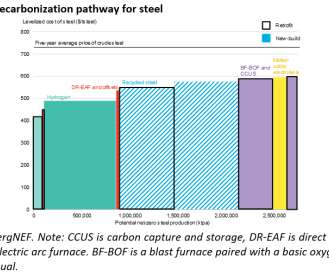Anglo American, Aurizon to explore feasibility of hydrogen-powered trains for bulk freight
Green Car Congress
DECEMBER 22, 2021
Aurizon , Australia’s largest rail freight operator, and leading global mining company Anglo American will work together on a feasibility study to assess the introduction of hydrogen-powered trains for bulk freight. Rail freight already produces up to 16 times less carbon pollution per tonne kilometer than road. Earlier post.)













Let's personalize your content